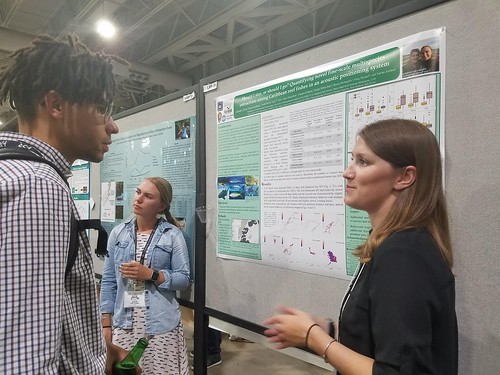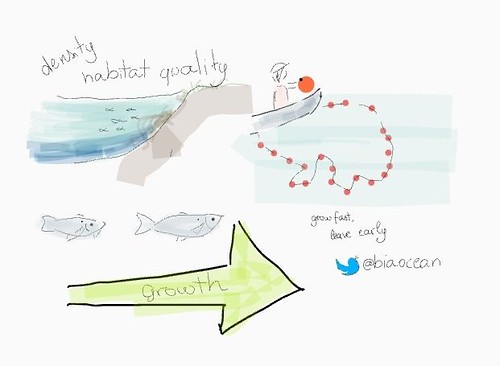Lian Guo GRAD SCHOOL DIARIES
graduate school conference research networking tips
Lessons from My First Conference
At the end of August 2018 I attended my first giant conference as a graduate student: American Fisheries Society in Atlantic City! It was a five-day fish extravaganza I’m unlikely to forget.

Figure 1. Logo for American Fisheries Society National Meeting in Atlantic City (2018). (Source: American Fisheries Society)
Along the way, there were several lessons I learned to improve the conference experience as an early career professional.
1. Engage!
There are many opportunities at conferences, including workshops, talks, poster sessions, and socials. Each of these activities gives you the opportunity to meet another researcher, identify a potential employer, or learn new research methods. While it’s tempting to stay in your hotel room or out in the lobby, remember that every event is another opportunity to further your career.

Figure 2. My labmates, Ashleigh Novak and Grace Casselberry, chat with researchers at the AFS poster session. (Photo by Lian Guo)
2. Network through your Acquaintances
It’s intimidating to go up to people you don’t know, especially at a large conference. Every time someone you know is standing with someone you don’t know, it’s an opportunity to meet someone new. Also, if you know that your lab already collaborates with someone there, it’s another reason to begin talking to someone and whoever they are talking to! I even met someone just walking with them to the convention center. If it’s hard for you to talk with strangers (or people in general), try faking it until you make it (see TED talk below)!
Figure 3. TED Talk featuring Amy Cuddy titled “Fake It Til You Make It”.
3. Seriously, get into the Twitterverse
A surprising number of people (and potential employers) are invested in Twitter as a source of science communication and networking. Announcements, jobs, publication summaries, and jokes are plentiful. It’s also another way to meet people you didn’t manage to meet in person (professional Tinder?) and get your name out there. I made my Twitter the night before I left for the conference (@guofish1) and found it to be a really valuable way to get conference updates and talk summaries. Bonus, if you like sketchnoting or drawing, people LOVE when you make visuals to accompany their talks (like @biaocean).

Figure 4. Quick sketch summary of labmate Matthew Devine’s talk, drawn by Bia Dias. (Image by Bia Dias).
Hopefully these lessons can help other early-career researchers just like me—we can do it!
